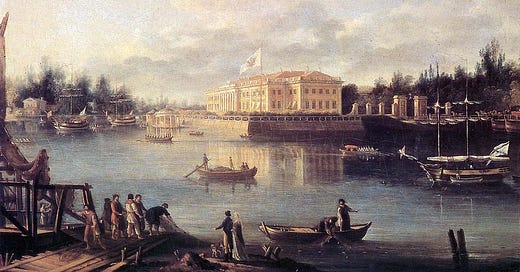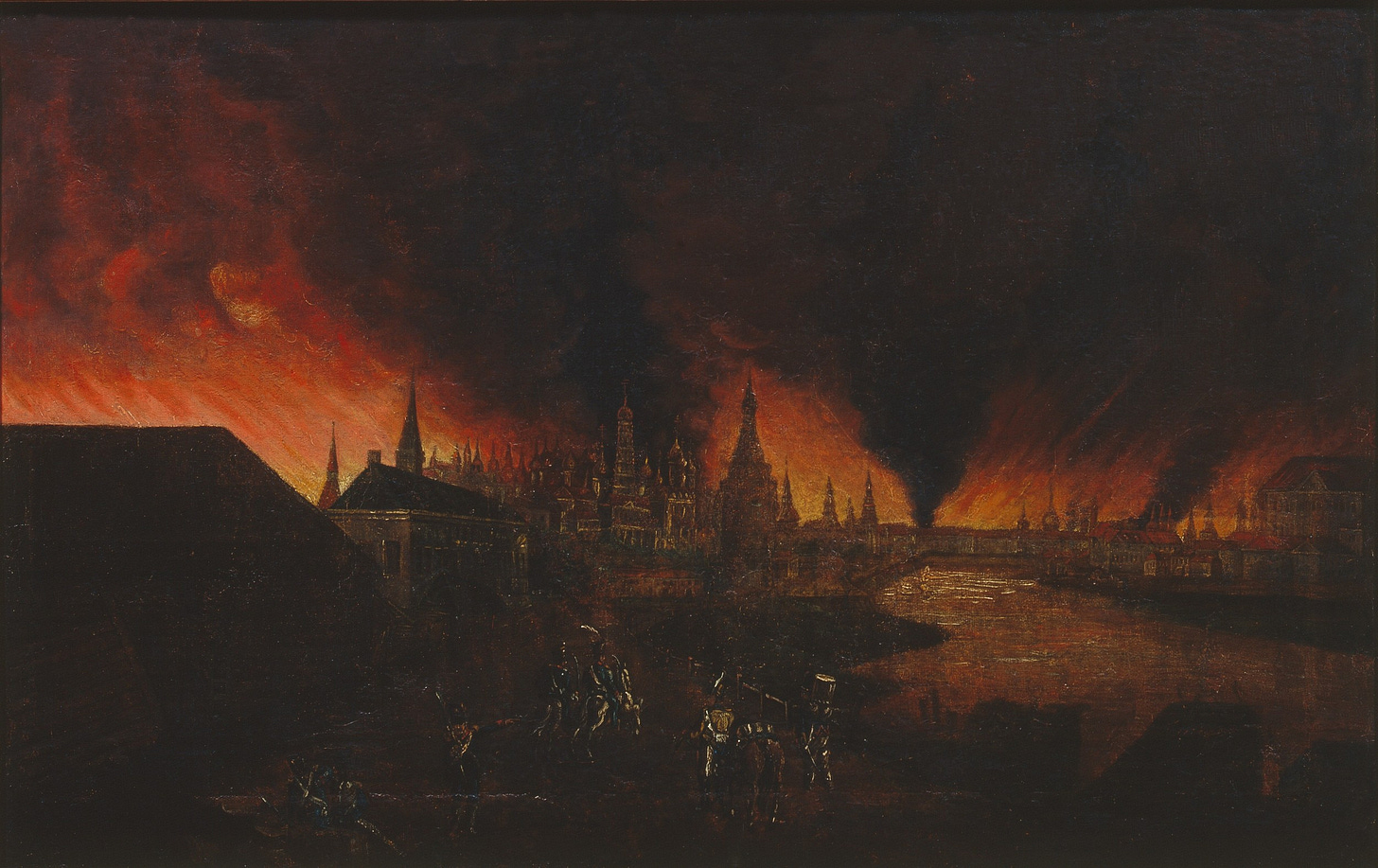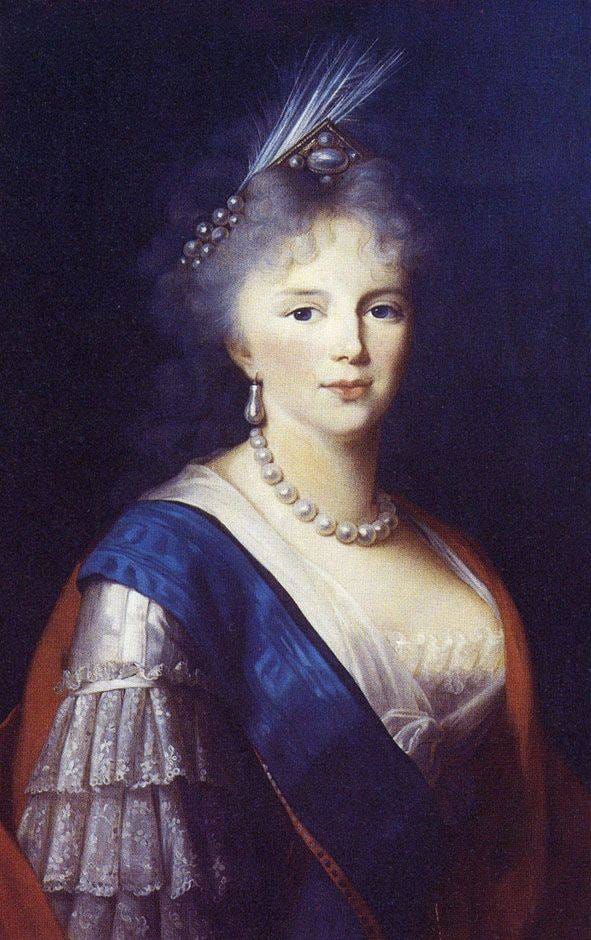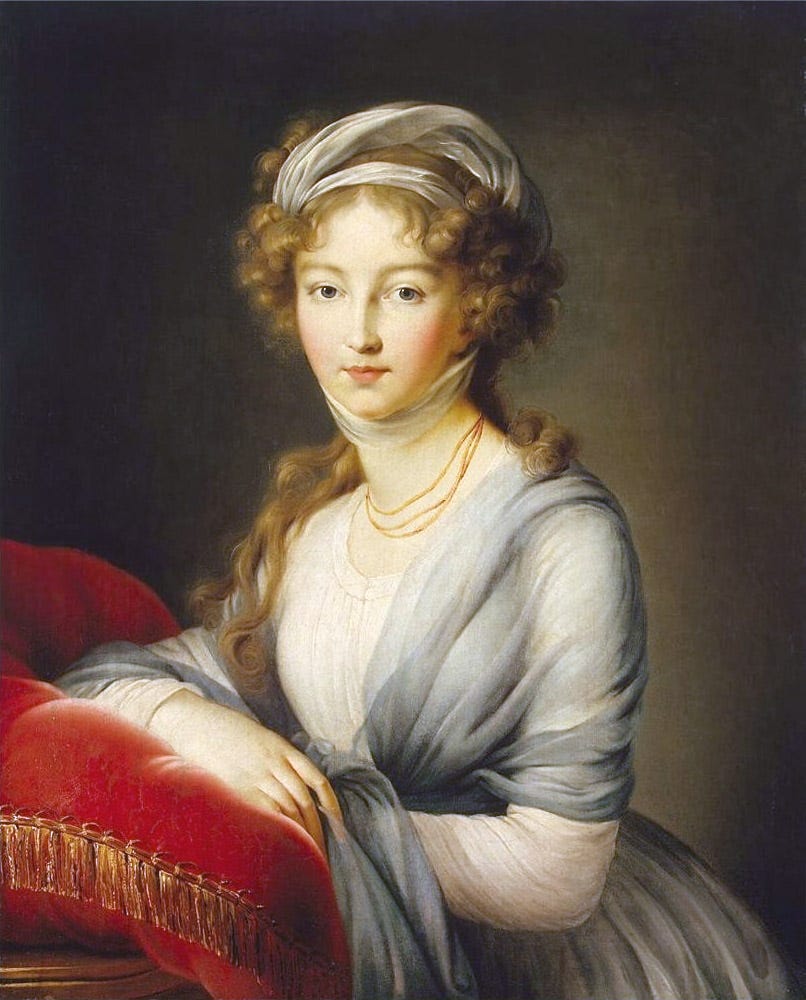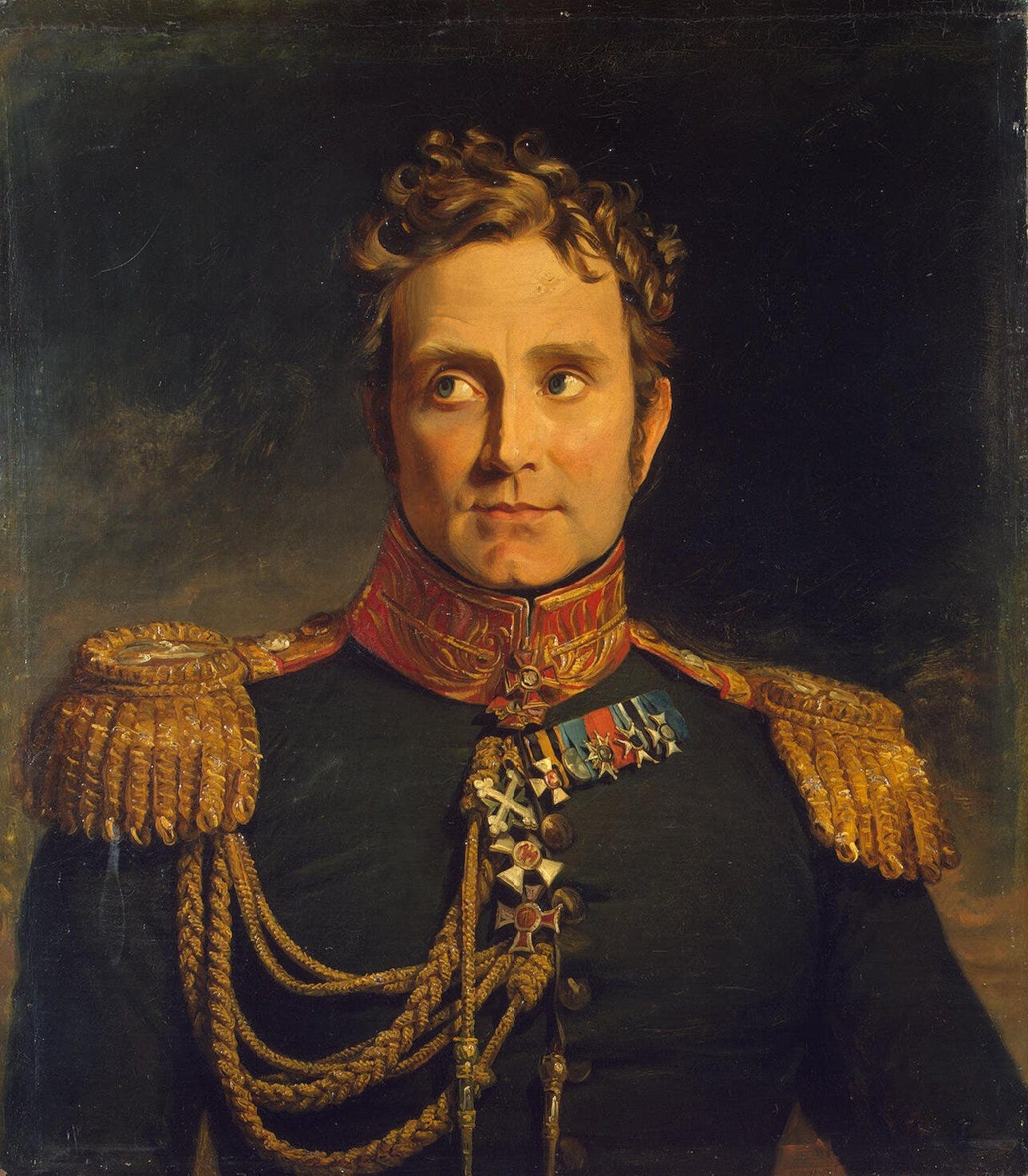Phantoms and Reflections
War & Peace | Week 38 | Contains spoilers up to Volume 4 Book 1 Chapter 4
Some email providers like Google may truncate this post. I recommend viewing in a browser or the Substack App.
Listen to my first thoughts:
One thousand pages ago, Pierre got drunk and tied a policeman to a bear. Those were the days.
It was the last time our hero had a run-in with the law, and the first time we got a taste of the boy's strength. And his weakness, for following the bottle and a bad idea.
"On the 3rd of September Pierre awoke late." Hey, what's new? He was late to his father's deathbed, and he was late to the battle of Borodino. Wine and sleep and indecision. Will he ever change?
He's got a plan to kill Napoleon. He knows he won't succeed, but he's not fighting Napoleon now. He's at war with his own nature. His lack of resolve.
But still, Tolstoy whispers: those who seek self-sacrifice and heroism are the most useless in society. They never understand the events they are part of.
So today is the 3rd of September, and Pierre has awoken late. His city is burning. His mentor is dead. His friend is dead. The woman he loves cannot, and should not, love the man he has become.
Into the fire, he goes, our star-chasing sleepwalking giant. "Only unconscious action bears fruit," whispers Tolstoy. Do not think, Pierre. Act.
Pierre acts. "He stopped as if awakening from a dream." His second wake-up today. To save a three-year-old girl from a burning building. A sickly slobbering child who tries to bite him out of fear.
It will not change History, but it is the most noble thing he has ever done. As he retraces his steps, a new determination grows within him. For it is better to be a good man than a Great one.
He is arrested for arson, but if he is executed now, it will be for saving lives, not taking them.
Meanwhile, four hundred miles away, his wife, pregnant with another man's child, has overdosed on a "certain drug to produce a certain effect."
Could he have saved her life too? Hélène, the woman we never knew?
She and her brother (lover?) are dead. And that should matter.
Should matter more than the phantoms and reflections in high society. Matter more than their father's elocution and their brother's half whit.
It is the 3rd of September, Pierre is awake, and the whole world is asleep.
Never miss a Whisky and Perseverance update. Subscribe to
and turn on notifications from the manage subscription page.Character Cheat Sheet
Some minor characters we met this week…
Marya Nikolaevna The wife of a Muscovite civil servant. Her family is not aristocratic like the Rostovs, and here we get a glimpse into the confusion, disarray, and tragedy of normal Muscovites fleeing the French and the fire. Coincidentally, she shares the same name with Maria Nikolaevna Bolkonskaya, Andrei’s sister.
Katyechka Her youngest daughter, left behind as they fled the fire. I can imagine Pierre expecting a sweet cherub. He finds a “sickly, scrofulous-looking child, unattractive like her mother.” Both mother and daughter are described unfavourably compared to the “oriental beauty” Pierre meets in the next chapter. His preoccupation with beauty and ugliness has me a little stumped and unsettled in these chapters – it seems out of place. If anyone has any thoughts, I would love to know.
Maria Feodorovna Volume 4 opens with a reference to the “two Empresses.” These are Tsar Alexander’s wife Elizabeth Alexeievna and his mother, the Dowager Empress Maria Feodorovna. She was born Sophie Dorothea, the daughter of a German duke. As Tolstoy implies, she was closely associated with national charities, especially the housing and education of orphans. She set up the first Russian school for the deaf and supported the career of the blind musician Charlotta Seuerling.
Elizabeth Alexeievna The Tsarina was born Princess Louise Maria Auguste of Baden of the House of Zähringen. She was fourteen when she married the future Tsar Alexander. They had two daughters, both rumoured to be illegitimate, and both dying before their second birthday. Despite the infidelity of her husband and her own affairs, she was politically loyal and supportive of the Tsar.
Anna Pavlovna We haven’t seen the grand hostess of Petersburg for a long time. Remember she is a maid of honour to the emperor’s mother, Maria Feodorovna (see above) and that her salon was patriotically anti-French as war approached. Fines were issued for speaking French, and here she intends to shame “several important personages” who have recently visited the French theatre.
Bilibin The diplomat of many wrinkles and bon mots is back.
Prince Ippolit The useless son of Prince Vasili Kuragin, brother to Anatole and Hélène. The bargain bin Bilibin. He likes to think of himself as a whit, but everyone else regards him as a bit of a twit.
Alexandre Michaud The French colonel with a Russian soul appeared briefly earlier in the novel, pointing out the inadequate fortifications at Drissa as the army fell back towards Moscow. He now brings even worse news: the loss of the capital itself. Michaud was originally from Nice, part of the Kingdom of Sardinia before it was annexed by the French Republic in 1793.
Below, for paying subscribers, I talk more about Pierre’s arrest for arson, the performance of patriotism in Petersburg, abortion in Russia and Tolstoy’s thoughts on suicide, an emperor’s moment of illumination, and Rostov’s anti-heroism.
Keep reading with a 7-day free trial
Subscribe to Footnotes and Tangents to keep reading this post and get 7 days of free access to the full post archives.


